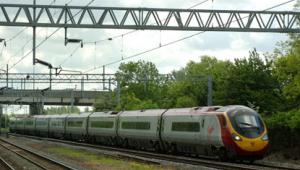By Graham Clews
24 March 2011
Cancelling National Express’s east coast rail franchise saved the taxpayer between £200m and £450m, the National Audit Office has said.
The Department for Transport’s ‘decisive action’ to halt National Express’s running of the InterCity East Coast franchise in 2009, and refusal to renegotiate the contract, prevented other at-risk franchises from seeking to re-examine deals, the NAO found.
If this had happened, it could have led to the government having to support the at-risk franchises with up to £450m.
The NAO said the DfT’s 2007 deal with National Express included good protection for the taxpayer if the company had financial difficulty. But the government had not stress-tested the viability of National Express’s bid in an economic downturn because ministers did not foresee this possibility, the NAO said.
In early 2009, National Express said the franchise was experiencing financial problems and tried to renegotiate the deal. The DfT chose to terminate the contract instead and set up a public company to run the line.
The NAO estimated the cost of running the line since 2009 at £15m, and it said that National Express paid the DfT £31m on ending its franchise as part of the original deal.
The overall cost to the public purse will not be clear until the franchise is re-let next year, the NAO said.
NAO auditor general Amyas Morse said: ‘The DfT acted decisively to protect the public interest and achieved value for money by avoiding the significant risk that other holding companies would seek negotiated exits from their loss-making franchises.’
Public Accounts Committee chair Margaret Hodge praised the DfT’s decisive action.
‘This committee has seen too many cases of inadequate commercial skills and poor contract management leading to increased costs for the taxpayer,’ she said.
‘In this instance the DfT has shown that the public sector can compete effectively in the commercial world.’




















